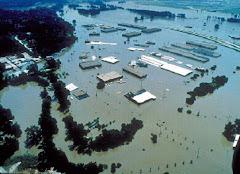The Issue Of Transportation And Extreme Events In Global Warming By: Elias Maseko
With the issue of transportation, it is predicted that Americans will continue to put gasoline-burning cars on the road at alarming rates over the next twenty years. The number estimated is around 300 million new cars. With this expectation, it is clear that cars should be made with energy efficiency in mind. Otherwise, they will cause extensive global warming.
Hybrid engines are being touted by many celebrities as a way to prevent global warming. Many celebrities prefer the Prius hybrid car. These hybrid cars do, in fact, double gas mileage. At the same time, they reduce harmful emissions that lead to global warming.
Ethanol is being used in many countries, now including the US, to decrease pollution and dependence on foreign oil. Global warming is impacted, too. Brazil, which uses ethanol almost exclusively, makes the fuel from sugar cane. In the US, corn is the chief source of ethanol.
The world, especially the US, can make some changes in the way they move about and transport their goods. If people do nothing, greenhouse gasses will surely increase drastically. However, if changes are made, global warming will be cut to a very large degree.
Effects of extreme events
There will be more people who will die as a result of intense heat. Elderly people and poor people who cannot afford air conditioning will be most at risk. The people who do have air conditioning will run theirs more. The added energy use will increase global warming as more greenhouse gases are emitted into the air.
Farmers and ranchers will notice problems with their operations due to global warming. Crops will have a risk of being damaged by drought, flooding, or erosion. The uncertainty has always been a part of farming, but now, it will be even worse.
Finally, the hurricanes intensified by global warming will have a great impact on the earth. People will be injured or killed in the storms themselves and others will die as a result of infectious diseases that come as a result of the mess of the clean-up.
By: Elias Maseko
Subscribe to:
Post Comments (Atom)
Blog Archive
-
▼
2007
(14)
-
▼
November
(9)
- Kids "reinvent The Environment"
- The Effects Global Warming May Have On Our Planet
- Easy Steps To Fighting Global Warming Today To Sav...
- Effects Of Global Warming That Are Happening Today
- The Issue Of Transportation And Extreme Events In ...
- Global Warming: The Ipcc Reports
- Beating The Heat With Air Conditioners
- Global Warming And The Significance Effects
- What Is Global Warming
-
▼
November
(9)


No comments:
Post a Comment